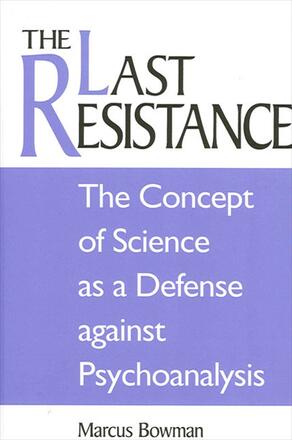
The Last Resistance
The Concept of Science as a Defense against Psychoanalysis
Alternative formats available from:
A fundamentally new examination of the controversies raging around psychoanalysis.
Description
Radical and uncompromising, The Last Resistance is a penetrating rediscovery of the essential nature of psychoanalysis. Looking at the Freud wars in the historical context of the rise of modern science and the decline of traditional religion, it shows how outmoded notions of science are used as a resistance to the rational investigation of the self. Unashamedly partisan, this new examination of the controversies raging around psychoanalysis will prove compelling for readers of every faction in the Freudian conflicts.
Marcus Bowman is a practicing psychotherapist living in Cork, Ireland.
Reviews
"I like the author's impressive conceptual mastery of the recent criticisms of psychoanalysis and the philosophical power and nuance of his response to those criticisms. The book contains the most intelligent philosophical discussion of the writings on psychoanalysis by Popper, Grünbaum, Webster, Sulloway, and Masson. Bowman also offers a brilliant analysis of Freud's supposed hermeneutic friends, Ricoeur and Lacan. Almost as a bonus, he gives an insightful treatment of Nietzsche's ideal of intention (as it relates to psychoanalysis). The book packs a terrific intellectual punch." — Paul Robinson, Stanford University
"In a sort of tour de force, essay-like, accessible style, Bowman presents his views on the recent and ongoing debate on the 'scientific status' of psychoanalysis. He competently and persuasively takes on the critics of Freud—be they of the positivist camp, Popper, Grünbaum, Webster, or of the more challenging authors, Lacan or Ricoeur—unearthing some of the underlying motives at work in 'downgrading' psychoanalysis to a 'pseudo-science' (or simply hermeneutics). Flowing from his central and very cogent counter-arguments against Freud's detractors, Bowman moves on to an impassioned plea for 'mental health' as being the task of enhancing a genuine sense of autonomous selfhood, which is being undermined by the anti-Freudians." — Leo Goldberger, coeditor of Ideas and Identities: The Life and Work of Erik Erikson